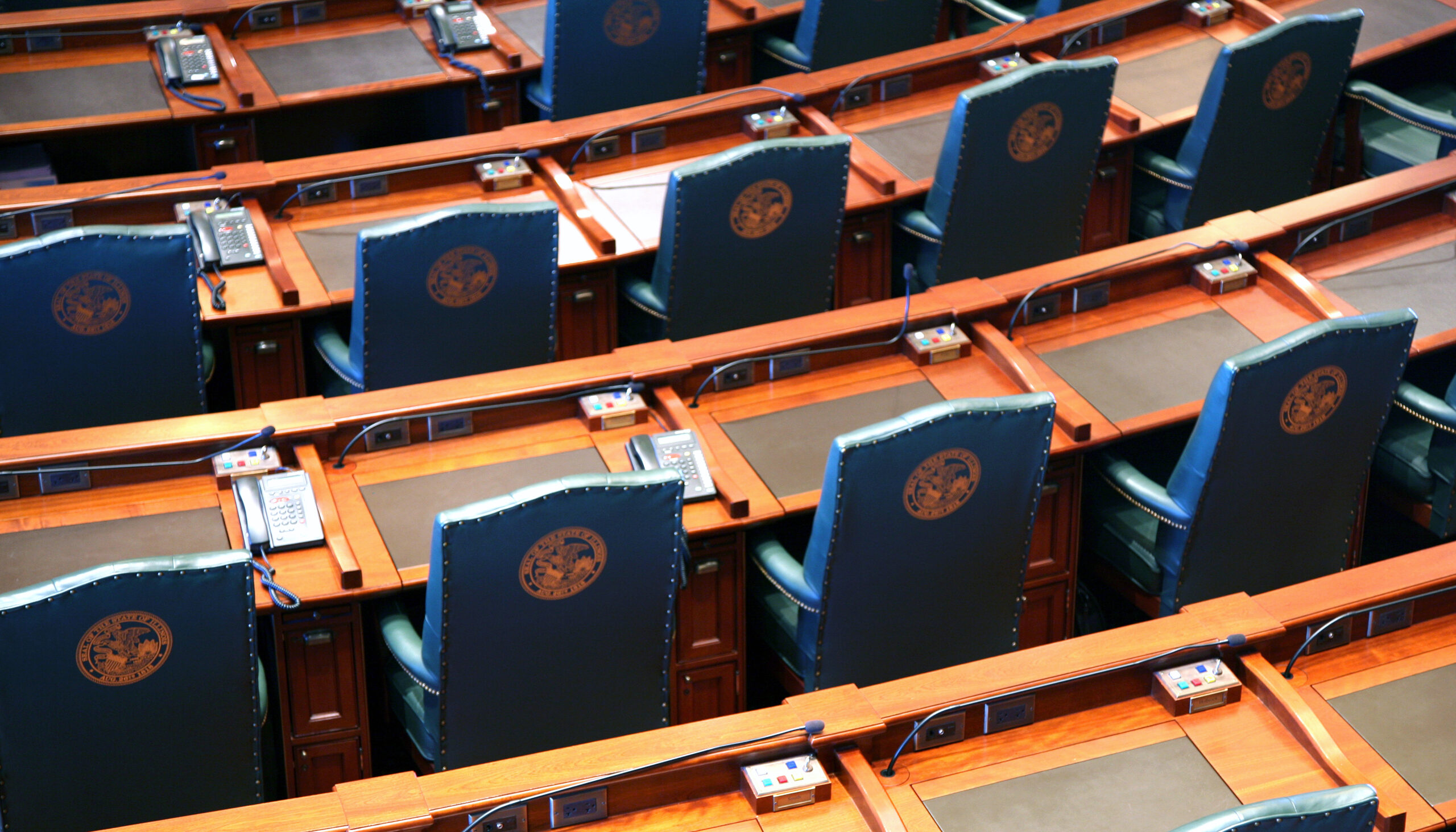Global study finds most people want gender-balanced government, even if quotas are needed
A new international study co-authored at UC Berkeley concludes that people see gender-balanced government as better for policy — and better for democracy. While quotas remain controversial in the U.S., people still prefer balance to men's continued dominance.

Daniel Schwen via Wikipedia
May 21, 2025
Americans are deeply divided about the use of quotas in hiring and education, but quotas are used in many countries to assure a balance of power between men and women in legislative bodies. New research co-authored at UC Berkeley finds that when governments are gender-balanced, people believe the political process and policy outcomes are more fair and democratic.

UC Berkeley
In a major study that included 17,000 people in a dozen countries — in Europe, the Pacific and the Americas — researchers found overwhelming support for a balance of representation between men and women, even when quotas are needed to achieve it. The U.S. and the U.K. don’t use such quotas for national office, but even so, respondents in the study saw strong benefit, said Berkeley political scientist Amanda Clayton, the lead author.
The most important finding “is that citizens in democracies around the world strongly prefer women’s equality to women’s exclusion, regardless of how the equality is achieved,” Clayton said in an interview.
“In the best-case scenario, citizens would prefer a gender balance achieved without quotas,” she explained, “but we know from centuries of male dominance that that either doesn’t happen or happens at a glacial pace. So compared to men’s political dominance, women’s inclusion via quotas is perceived as more democratic and more legitimate than women’s exclusion.”
The study, “Electoral Gender Quotas and Democratic Legitimacy,” is published in the latest issue of the American Political Science Review. Clayton is an assistant professor in the Department of Political Science, and her research has focused on gender in politics.
Gender quotas in politics began to emerge about a half-century ago, with Norway and Sweden as pioneers, but their use boomed in many countries beginning in the 1990s. Some quota efforts are focused on the number of women that political parties consider for office, or the number of women nominated; other laws mandate a specific percentage of seats for female lawmakers.
The most popular electoral reform in 50 years
Today, more than 130 countries worldwide use quotas to drive gender balance, and an increasing number require a 50-50 balance between male and female legislators.
Gender quotas “are the most popular electoral reform” of the late 20th and early 21st centuries, and they have been a highly effective way to bring women into political power, the authors write. Some analysts, however, have worried about a “quota penalty” — a sense that voters may reject the quota-driven increase of women’s political power as illegitimate and contrary to democratic values.
“The choice is between women’s inclusion via quotas or the continued persistence of male-dominated political bodies.”
That was the question that Clayton and her co-authors set out to explore. They surveyed voters in a dozen democracies — Argentina, Australia, Brazil, France, Mexico, New Zealand, Norway, Peru, Portugal, Spain, the U.K. and the U.S. Except for the U.S., all of those countries have used some form of gender quotas in national or local nomination processes or in legislative bodies. In some cases, the quotas are voluntary or used only by left-leaning political parties in nominating candidates.
The researchers asked the study subjects to read different versions of a short, fictional newspaper article about a city council in a neighboring town. In some of the articles, that council was made up of eight men. In others, it was composed of four women and four men, with no mention of quota policy; and in others, the readers were told specifically that the four women were elected under a gender quota policy.
The researchers also looked at how the subjects responded to the council action on two fictional measures: one that required training against sexual harassment, and a second, unrelated to women’s rights, on the mistreatment of animals on commercial farms.
A powerful rejection of male-dominated politics
The results? Voters perceived that the gender-balanced council was “overwhelmingly” more legitimate in its process and its policy outcomes than the all-male council, the study found. The council elected under quota requirements was seen as only slightly less legitimate.
“We find little evidence to support quota skeptics’ claims that raising women’s … representation via affirmative action would diminish democratic legitimacy,” the authors wrote.
Clayton said that voters are often skeptical of quotas when the gender-balancing policies are new, but that the skepticism fades within a few election cycles.
“What we’ve found is that, typically, once a party has a mechanism to include women, it doesn’t get rid of it,” she explained. “So the quota just becomes sort of part of the electoral environment. People might not even refer to them as quotas anymore. They just expect that women will be equally represented.”
For countries like the U.S. and the U.K., where single lawmakers are elected to represent single districts, it’s more difficult to impose a gender quota, the authors wrote. And conservatives in the two countries lean hard against quota systems.
In both countries, voters viewed policy actions taken by all-male councils and quota-balanced councils as about equally legitimate. However, they saw the quota-balanced councils themselves, and their decision-making processes, as more legitimate.
The authors of the study noted one irony: that authoritarian countries will sometimes use quotas to enhance their reputations for fairness and to distract from their abuses of human rights, including women’s rights. They did not mention any such countries by name.
Even in democratic countries, the quotas are not a panacea. Women still can face a backlash as they take a greater portion of power or advance into areas that have remained dominated by men, Clayton and her co-authors said.
But, they conclude, policy debates will be more effective if they focus on the fair representation of women in political power.
“The choice is not between decision-making bodies composed of women who can make it on their own versus institutions composed of women benefiting from affirmative action,” the authors wrote. “Rather … the choice is between women’s inclusion via quotas or the continued persistence of male-dominated political bodies.”